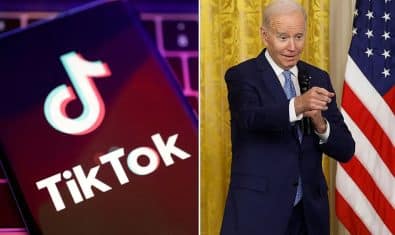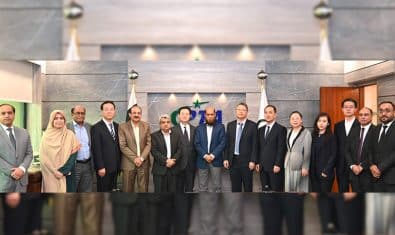
But Jobs had not made this prediction in a vacuum. Facebook had already opened up its web platform to 3rd party developers a year ago and had seen its user base almost triple in the next 7 months.
This so-called ‘eco-systemization’ of products has since been adopted by Google, Microsoft, Samsung, RIM, Amazon and a host of others. I sense there’s a lucrative opportunity for the development of such ecosystems locally in Pakistan as well, and below I will lay down the blueprint of how to set them up.
What is an app ecosystem:
App ecosystems strategically support core products via nurturing development communities around them and providing users a long tail of content and services to enjoy and utilize (hence the word ‘ecosystem’). Success stories ensure that all stakeholders win:
- Developers make money via provision of content and services.
- Users gain access to the choicest fresh content and services.
- Brands get to connect to users and advertise their products and services.
- Advertisers see new streams of revenue generation open up.
- And above all, the products around which the ecosystems are built see their demand shoot up.
How effective are app ecosystems as a revenue stream? Here’s an example: according to Google’s own reporting, their app store adds roughly $1.20 in ARPU for each user of their storefront. In other words, app stores with base-level quality content – even when low on the monetization ladder as ad-driven Google Play is – drive a substantial ARPU addition for their parent companies.
An app ecosystem localized for Pakistan:
It remains to be seen whether 2013 is the year Pakistan finally registers a seismic increase in year-over-year smartphone growth, or whether the democratization of this platform will get pushed to 2014-2015. Either way, whoever moves in to develop an ecosystem of localized consumer apps in Pakistan will lead the next 5 years of the mobile landscape here.
Where smartphones and high end feature phones would generate high ARPU within such an app ecosystem, understand that low end feature phones need not be excluded from the ecosystem. We can use the “Cloud” to effectively bring computing power to every Pakistani mobile subscriber, and in this way the LTV of low end mobile subscribers can be bumped up as well. Thus the business case for a Pakistani app ecosystem is very compelling.
[two_third]
The fundamentals are in place:
Relevant fundamentals for developing such an ecosystem are already in place, including:
- Numerous mobile developers have sprung up in our tech sector in the last 2 years.
- With a backdrop of mass consumerization of Pakistan’s middle classes in the previous decade, brands have become eager to court consumers.
- Mobile broadband is making its way in and a smartphone explosion is now overdue, with Huawei and Q Mobile holding back no punches.
- Consumers are already heavily acquainted to using the kind of services 3rd party apps provide (e.g. chat, mobile games etc).
- A special mention for locally developed Android tabs is in order, for they can position themselves quite naturally to support a Pakistani app ecosystem.
[/two_third]
[one_third_last]
We have seen some half-baked attempts of Pakistani telecom companies in developing local app ecosystems.
The root cause of such endeavours not working out has been a lack of thought leadership on the subject and thin understanding of the stark difference between an ecosystem and simple VAS.
[/one_third_last]
It also goes without saying that such an ecosystem, if nurtured the right way, will ultimately become a channel for much more than just entertainment content and services. It will raise the standard of living of the average Pakistani in a multitude of ways.
Monetization strategy:
Does a low rate of data subscription hurt the business case for such an ecosystem? Not really, because milking expensive data plans is not the outright revenue model here. The revenue model, instead, is two pronged:
- Driving core product sales: Assume a local telecom giant develops an app ecosystem and exclusively bundles it with its subscriptions. Then the ecosystem – given it successfully niches itself – would in turn become a growth driver for selling more subscriptions (think ‘brand differentiation’). This is the same reason Apple was able to sell more iPhones after the introduction of the App Store in 2008.
- Advertising revenue: Another revenue stream generated here would be monetization of interaction between brands and consumers. Mobile advertising is a huge global industry and may be worth $500 million in Pakistan according to Google. Right now Pakistani companies buy ads on Facebook, Google and local websites to reach their audience, so a big chunk of that revenue can be captured by a local app ecosystem too.
A third possible revenue stream, i.e. taking a cut from 3rd party developers’ earnings, will be akin to killing the golden goose. So don’t even think about it. We are living in a world where Facebook, Apple and Google have already cemented their position as premier app platforms. The 30%-70% cut they enforce on developers is a blessing of their first mover advantage. No developer would ever develop for a new app store unless they were promised a significantly improved cut. I recommend to keep this between 0% and 5%, anything greater severely dampens the economic incentive for 3rd party developers.
Platform guidelines:
Understand that an app store is much more than a value added service. Given a local app ecosystem would essentially need to be carved out of a space Google Play and Apple’s App Store already occupy, it would be critical to tether such an ecosystem to well defined policy guidelines. Such guidelines would need to be looked over by a dedicated ‘growth team’ with the sole prerogative to:
- Ensure 3rd party apps are localized to appeal to the Pakistani demographic.
- Subject all 3rd party apps to a review system in order to police quality of content. A ‘review subcommittee’ paneled by local experts would need to be in place.
- Enforce exclusivity on all 3rd party apps made for the platform, or else incumbent app stores would simply cannibalize the platform.
- Work with a ‘platform team’ to develop mobile carrier payments to facilitate in-app purchases on the platform. 3rd party developers would need to monetize and find it worthwhile to develop quality apps for the platform for all this to work.
- Work with a ‘platform team’ to ensure >99% uptime.
- The platform would need to be a native mobile app instead of a web based store. Web based storefronts suffer from low discoverability in the mobile space. So with the internet reaching more Pakistanis via mobile than via PCs, it doesn’t make sense to not have an optimal mobile strategy.
There is a right way to do an app ecosystem, and then there is a wrong way to do it. Failed attempts by Vodafone and Verizon are examples of what not to do, whereas Chinese and Korean app stores provide a blueprint of what it takes to get a successful ecosystem going. There are no free lunches and anyone thinking they can luck out into the next Angry Birds through thinly mentored raw talent with no funding support is clearly ignorant of the 47 games Rovio produced before they got it right with their hit title.
In short, the guidelines I have summarized above need to be incorporated into the DNA of any local ecosystem built from the ground up, otherwise it will not get going.
Conclusion:
We have seen some half-baked attempts of Pakistani telecom companies in developing local app ecosystems, but there are no brownie points for failure. The root cause of such endeavours not working out has been a lack of thought leadership on the subject and thin understanding of the stark difference between an ecosystem and simple VAS. Strategically speaking, if done right such an ecosystem could drive brand differentiation, alternative revenue streams and a clear way out of the incessant price wars that have been going on since the better part of the last 3 years.
We can hope that 2013 is different year for us, a year marked with outside-the-box solutions instead of flogging the same dead horse. After all, our mobile development community deserves better. Our consumers deserve better. Our brands deserve better. In fact our whole country deserves better.
The writer is running White Rabbit Studios – a social game development startup – for last 3 years. He is a student of history and an expert at negotiating the numerous travails of tech entrepreneurship in Pakistan.


























What a great article!
I dont think its a right time to invest huge in this category …
We are still lacking in the basic services like broadband (3G, Fiber optic, etc.) … First we need to improve our infrastructure of networking …
ISP’s are much lower quality (see the speedtest.net data) … No fiber optic (ISP) provider in retail … 4G already launched and world is preparing for 5G and we are still in era of 2G … Still our local ISP’s are based on wired network(Complex Networking); no one aware of WIFI power … WiMax ISP’s are still lacking in coverage …
Once we are successful in building the strong infrastructure for networking then concepts of E-Business (APP Stores/E-Commerce) will boost in our region.
Until only M-Commerce is useful (only SMS-Commerce category like m-banking easypaisa etc.) because we are strong in GSM based services and SMS services are in range of every one.
Yes I will support initiatives from entrepreneurs because “business will be not according to what it is … I will be according to what entrepreneurs think”
I dont think its a right time to “Invest huge” in this category <— what kind of huge investment do you mean? give us a ballpark number. why i ask? because a like for like analysis is what is required here. for e.g. according to my knowledge, the investment required to update pak's telecom infrastructure is what's actually 'huge' ($200M+ spread over 5 years per telco). im sure the investment required for ecosystem is 1/100th of that???
secondly appstores can easily grow on EDGE as well. there are examples of appstores made for africa (!!!) which are doing nicely (google it), so be sure to understand app ecosystem for local developers is not dependent on having 3G availability. what you're suggesting is just more delays, and that ultimately affects the consumer of pakistan. think smart, not small ;)
My friend … you forgot my last line … Entrepreneurs can change the world … but with this level of infrastructure, it is difficult to setup and almost impossible to successfully run e-business like “GOOGLE PLAY, APPLE APP STORE, AMAZON, EBAY, etc.) … Can you run store like Google Play in Pakistan ??? … and why i used “Huge Investment Word” because my assumption is to setup appstore like “Google Play”
Yes we can start the hundreds of thousands of e-commerce modules … but where you will get customers ??? where number of factors influencing to customer to not adopt e-commerce (security, fraud, trust etc.) …
I am MBA in MIS and completed the thesis on “Factors influencing adoption of e-commerce in Pakistan” … So I interviewed and research the number of reasons in this manner … and conclude the number of reasons where network infrastructure is the most important one …
‘my assumption is to setup appstore like “Google Play”‘ <—- again wrong comparison. Google Play is having 600 million devices connected to it. Pakistan has 6 million android devices. that is 1% of Google Play's size. maintenance costs increase linearly so cost of maintaining pakis app store is 1% that of Google Play, and probably even lesser by 1/6th because of cheap resource availability in Pakistan compared to abroad.
"customer to not adopt e-commerce (security, fraud, trust)" <—- paki smartphone user already using Google Play, just go see top downloads in pakistan listing. the whole point is to bring that customer into local ecosystem instead of having them go to foreign appstores to get their apps.
"I am MBA in MIS" <—– you cant learn the reality from sitting in a classroom bro. interviews and research only go so far. we are in the industry and know what is realistic, what is not. you are running after perfection. perfect infrastructure, perfect appstore like Google Play, perfect consumer who loves mobile commerce, etc. it sounds like you want to invest $500 million on this project and wait another decade. there are many appstores in the world (other than google play, and apple) which are successful. they are smaller, cheaper, and some even exist for EDGE. since you like research, you should use the power of google search to educate yourself about them ;)
Brother i think instead of debating neutral you are going personal … I am in industry (as a web designer/developer) since the age of 13 (2002) and completed MBA last year. Used google core services like gmail, adsense, from their launch date. Witnessed the rise of google/microsoft from windows 95 to 8. Both companies had number of failures (products like google wave etc.) which we need to keep in mind because we can not tolerate.
I am not disagreed with your any comment/view, I just want a perfect appstore like GooglePlay in Pakistan (or 1% of GooglePlay as you suggest) … But in my view’s we cant achieve this target without strong infrastructure and numbers of other factors …
World is moving towards tablets and Microsoft move of Windows 8’s Metro UI converted PC’s into future tablets … while keeping this strategic move in mind the demand of these “appstores” will be double in next few years … So today’s “appstore” investment will grow rapidly … But when i come back to Pakistan’s scenario without basic upgrade we can not move with the world simultaneously … So In my point of view we can not achieve 100% idol appstore like googleplay until basic structure … but i believe “entrepreneurs” can achieve this too in Pakistan.
Right now we need numbers of online stores of traditional goods/services (like daraz.pk) which can aware customers to adopt it and in future this will motivate investors to “INVEST HUGE” in appstores and achieve perfect appstore like GooglePlay with Pakistan’s brand name.
“I am in industry (as a web designer/developer) since the age of 13” <—- i see why you dont get mobile, you're a web designer ;) mobile space is very different bro, and example of failure like google wave is an apples to oranges comparison again. this is your 3rd wrong comparison btw, youre making at least 1 in every reply now. please educate yourself about appstore dynamics, its just a google search away.
"I just want a perfect appstore like GooglePlay in Pakistan" <—- bro you're repeating your wrong assumption again. i don't know why you're not getting it. let me try to explain again. pakistan doesnt need $500 million infrastructure investment before it makes its local appstore. there are lots of examples of EDGE based appstores around the world. I am now finding myself repeating things again and again, at least keep the discussion going on logic please instead of ego?
"without basic upgrade we can not move with the world simultaneously" <—- bro the blockage is in your own ability to be innovative. i repeat that you need to educate yourself about what other parts of the world are doing. the world has already found lots of ways around this.
"INVEST HUGE in appstores" <— huge investment is not required in appstores. HUGE INVESTMENT is required for upgrading the infrastructure which no one is willing to do because of low ARPU. things like local app stores can help increase ARPU and give upgradation of infrastructure a good reason to happen. it is only then when local telcos will invest in infrastructure improvement. you have it the other way around bro,
thats a good article hassam baig :) by the way i have a question
why u post that kinda silly and non-serious things on your facebook account most of the time?
That’s most likely the game he made – Baby World :) http://apps.facebook.com/babyworldgame
great blueprint. you have selflessly laid out everything that needs to be done. sign of true leader. your solution will not cost big bucks but will make lots of money for everyone. kudos!
its like Quick Response Codes
The mobile network operators are well-placed to set up such initiatives. Aside from gaming/applications, there is potential for cloud-based service delivery platforms for other use cases as well, such as machine-to-machine. It’s an area with lot of potential, because by setting up such a delivery platform, operators can be more than just a pipe. Needless to say, the use cases need to be relevant to local market.
very nicely written. great work! i think 2013 is going to be the year of great changes. keep it up hasan!
I think pakistan is one of the few places where telcos can take on the large app stores. With local presence and advertising might they can really capture significant market share. The trouble is that not many content providers are looking at pakistan as a serious market. Mainly because they dont think people will pay for apps (as a standalone product). What is needed to give people an incentive to develop free content for the local market is an ad network.
also, mobile carrier billing will help